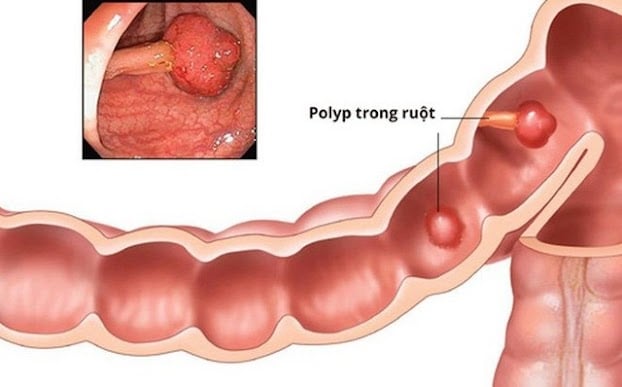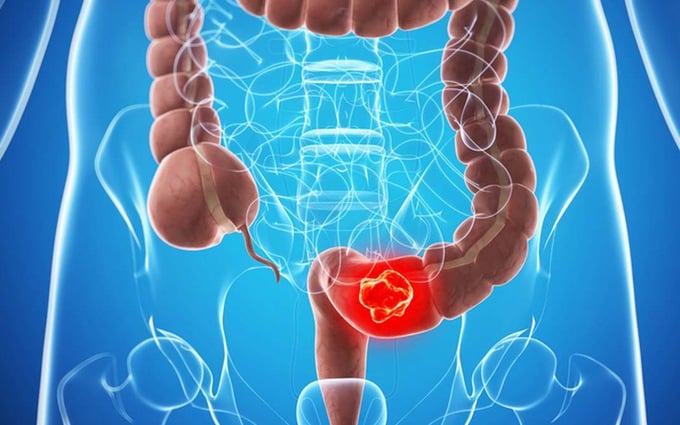At a recent online consultation on colorectal cancer screening and early detection held by K Hospital in Hanoi, Associate Professor and Doctor Vu Hong Thang, Deputy Head of the Department of Gastroenterology at K Hospital, shared that colorectal cancer is among the five most common types of cancer in Vietnam and worldwide.
Each year, Vietnam records more than 16,000 new cases and over 8,200 deaths attributed to colorectal cancer. This disease is currently among the five most prevalent cancers in the country. The causes are closely linked to genetic factors and, especially, unhealthy lifestyles.
The disease often develops from precancerous lesions or benign tumors in the colorectal region, such as polyps (including single, multiple, or adenomatous polyps with a count of 100 or more). If left untreated, these polyps can progress into cancer within about ten years.

Colorectal cancer often develops silently, giving affected individuals ample time for screening and early detection. According to Associate Professor Thang, the best approach is periodic screening. Colorectal cancer is directly associated with aging (people aged 50 and above), but recently, there has been an increase in younger individuals developing the disease, with cases reported as young as 12 to 17 years old. Consequently, some countries have lowered the recommended age for community-based colorectal cancer screening to 45 years.
Notably, colorectal cancer has a very high hereditary rate. Familial factors also play a role, especially in individuals with a history of multiple polyps or Lynch syndrome.
Nearly 100% Cure Rate with Early Detection
Regarding treatment, Doctor Ha Hai Nam, Deputy Head of Abdominal Surgery Department 1 at K Hospital, assured that a diagnosis of colorectal cancer is not something to panic about. Among digestive tract cancers, colorectal cancer has the most favorable prognosis. The five-year survival rate reaches 65%. However, to achieve this high success rate, early detection is crucial. If detected early, the success rate is nearly 100%, whereas late-stage detection lowers the success rate to only 14%.

Currently, colorectal cancer treatment involves a multimodal approach, including surgery, chemotherapy, radiotherapy, targeted therapy, and immunotherapy. Surgery remains the cornerstone of treatment. Treatment outcomes have shown significant progress, especially when the disease is detected early. According to Doctor Nam, individuals experiencing prolonged digestive disorders, such as diarrhea, fragmented stool, or unusual stool color (black or bloody), should promptly seek medical attention and screening from a gastrointestinal specialist.
“Implement the ‘2 Up, 3 Down’ Strategy for Effective Cancer Prevention”
“While we can’t control certain risk factors such as age or family history, taking proactive steps like early screening and adopting a healthy lifestyle can significantly reduce the risk of colorectal cancer. It is important to be vigilant and take control of your health by seeking appropriate medical advice and making informed lifestyle choices.”



































